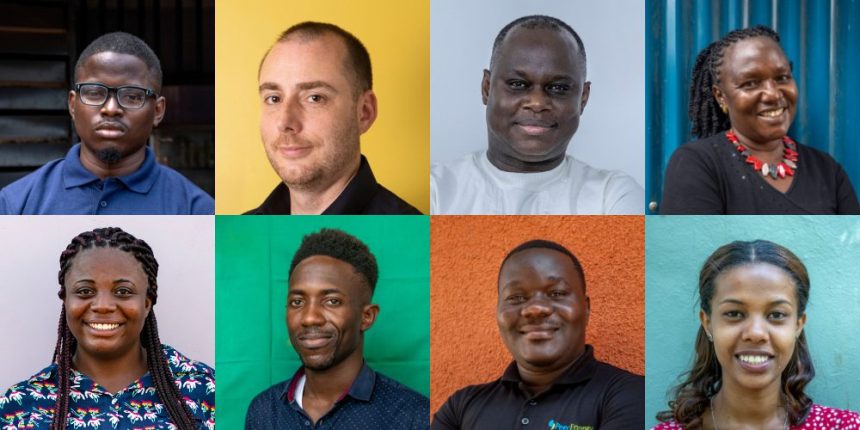Lawrencia Kwansah of Aquaponics Hub, A kit for new users to set up their own aquaponics system, has been shortlisted alongside other candidates for the 2022 Africa Prize for Engineering Innovation.
For the second year in a row, the programme will be offered as a digital experience, with intensive support provided through both one-on-one and group sessions. Where possible, sessions may also be held in-person. Following this period of support, four finalists will be selected and invited to pitch their improved innovation and business plan to the judges and a live audience. A winner will be selected to receive £25,000, and three runners up will receive £10,000 each. An additional One-to-Watch award of £5,000 will go to the most promising innovator, as selected by the live audience.
“Once again we have received an inspiring calibre of applications for the Africa Prize. This year’s shortlist demonstrates how technology can be used to drive development from a grassroots level, and we look forward to supporting these innovators in expanding their impact across Africa” said Dr John Lazar CBE FREng, Africa Prize judge.
The Africa Prize supports entrepreneurs creating disruptive technologies that may have otherwise gone unrecognised and under-resourced. Unlike conventional programmes, the Prize places greater focus on the socio-economic impact of the overall business. Alumni of the Africa Prize have addressed challenges identified in their own communities and are scaling up solutions to tackle issues as diverse as agricultural resilience, education, and sanitation.
The innovations represented by the 2022 shortlist tackle challenges central to the UN’s Sustainable Development Goals, such as better access to healthcare, reducing waste, improving energy efficiency and financial inclusion. This includes medical innovations, such as a device that maps a patient’s veins onto their skin to aid nurses inserting drips or drawing blood; environmental innovations, such as commercial packaging made from variety of agricultural waste, and an absorptive fibre made from the invasive water hyacinth to clean oil spills on land and water; and those enabling greater online inclusion, including an outdoor and off-grid communal workspace that gives students access to WiFi and power, and a prepaid bank card that requires no bank account and can be used worldwide, and that gives the unbanked access to online purchases and cash from mobile money.
The Africa Prize supports some of the brightest minds tackling global challenges and improving economic prosperity and quality of life, as part of the Royal Academy of Engineering’s suite of international programmes, which provide tailored funding, training and support to researchers and entrepreneurs in low and middle income countries. The programme is currently seeking partners and funders to help reach millions more.
The complete list of selected technologies and candidates is as follows:
- A-Lite Vein Locator, Dr Julius Mubiru, Uganda—A device that maps patients’ veins out as shadows on their skin, helping medical staff insert a drip or draw blood more easily.
- Agelgil, Afomia Andualem, Ethiopia—A sustainable range of packaging and tableware made from agricultural by-products such as barley and wheat straw.
- Aquaponics Hub, Lawrencia Kwansah, Ghana—A kit for new users to set up their own aquaponics system, complete with smart sensors to monitor crops and fish, and an online marketplace to sell produce.
- Bleaglee, Juveline Ngum, Cameroon—A sustainable cooking system that includes a smokeless cookstove made from recycled metal scraps, and bio-briquettes made from plastic and biomass waste.
- Coldbox Store, Adekoyejo Kuye, Nigeria—An off-grid cold storage solution for farmers to store and sell fresh produce without relying on the electrical grid.
- Crib A’Glow, Virtue Oboro, Nigeria—Foldable photo-therapy cribs that treat jaundice in newborns. The crib can operate on solar or grid power, and monitors the baby’s condition.
- Genesis Care, Catherine Wanjoya, Kenya—A system to dispense and later dispose of feminine hygiene products. The system is installed to give young girls access to affordable products.
- HoBeei, Mariam Eluma, Nigeria—An online free-cycle platform where users can upload unwanted or unused items in exchange for virtual currency with which to purchase other goods with.
- HYENA POWER POD, Dr Jack Fletcher, South Africa—A fuel-cell based hydrogen generator that converts LPG into usable electricity, all within one device.
- Kukia, Divin Kouebatouka, The Republic of the Congo—A process that transforms the invasive water hyacinth plant into an absorptive fibre that can clean up oil spills and stop oil leaks on land or water.
- Peer REM, Philip Kyeswa, Uganda—A remote monitoring and metering system for off-grid solar installations. It also alerts utilities to blackouts or tampering.
- SolarPocha, Oluwatobi Oyinlola, Nigerian—An outdoor workstation, a solar-powered space where students can connect to WiFi and off-grid electricity.
- Solimi Prepaid Card, Gaël Matina Egbidi, Togo—A Visa-backed card that does not require users to bank with one specific bank, giving unbanked individuals access to the digital economy.
- TelMi, Fabrice Tueche, Cameroon—A set of devices that help nurses monitor patients, respond to alarms, and collect data in order to improve workflow and response times.
- TERAWORK, Femi Taiwo, Nigeria—An online platform that connects users to freelancers, so small business owners can find and safely outsource key skills such as coding and accounting.
- VacciBox, Norah Magero, Kenya—A mobile and solar-powered fridge that safely stores temperature-sensitive medicine such as vaccines, to be used by travel clinics and for transport.












